Search Images
Browse Content (p. 1157)
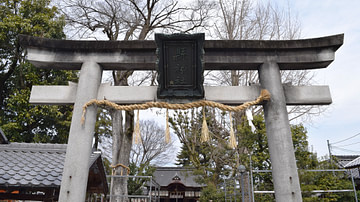
Image
Torii Gate at Agata Shrine
This is the torii gate at the Agata Shrine in Uji, Japan. It divides the sacred from the profane world in Shinto belief.
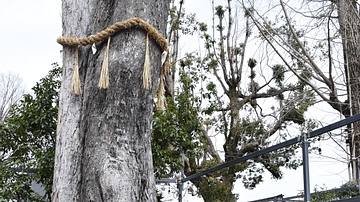
Image
A Sacred Tree at the Agata Shrine in Uji, Japan
This is a sacred tree at the Agata Shrine in Uji, Japan. This tree is regarded by Shinto believers as being a "yorishiro," meaning that it is capable of attracting spirits called kami. This yorishiro is used to summon the kami to ceremonies...

Image
Agata Shrine in Uji, Japan
The Agata were tribal units under the reign of the Yamato court (c. 300-650 CE), which held sway over western Japan. Particularly in the Nara and Kyoto areas, the agata played important political and ceremonial roles. The name of the Agata...

Image
The Heian-era Byodoin Temple
The Byodoin Temple in Uji, Japan dates from the late-Heian period, and it served as the residence of the influential minister Fujiwara no Michinaga (966-1028 CE). It was originally built in 998 CE. The most famous portion of the temple is...
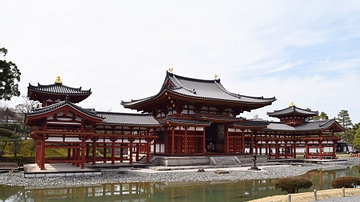
Image
Phoenix Hall at Byodoin Temple
The Byodoin Temple in Uji, Japan dates from the late-Heian period. The most famous portion of the temple is the "Phoenix Hall," which is a National Treasure and appears on the Japanese 10 yen coin.
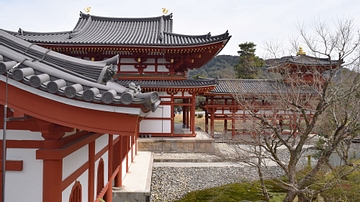
Image
Byodoin Temple in Uji, Japan
The Byodoin Temple in Uji, Japan dates from the late-Heian period, and it served as the residence of the influential minister Fujiwara no Michinaga (966-1028 CE). It was originally built in 998 CE. The most famous portion of the temple is...
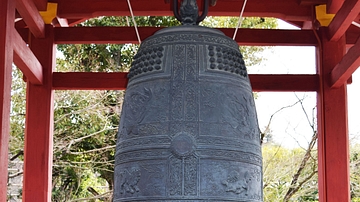
Image
Belfry at Byodoin Temple in Uji
This is an ancient bell at the Byodoin Temple in Uji, Japan, which is located not too far from the city of Kyoto.

Image
Dong Zhuo & Lu Bu
An artist's impression of the Chinese warlord Dong Zhuo (mounted) and his general Lu Bu from the Three Kingdoms period at the end of the 2nd century CE. (From the PC game Total War: Three Kingdoms by the Creative Assembly)
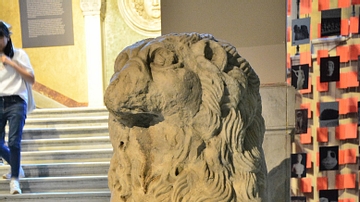
Image
Lion Statue from the Bucaleon Palace
Lion statue from the Monumental Gate of Bucaleon Palace. Culture: Byzantine, Period: Early Byzantine, Findspot: Catladikapi, Istanbul, Materials: Marble. (Istanbul Archaeological Museum)

Image
Torii Gate at Meiji Jingu Shrine in Tokyo
This is one of two entrances to the Meiji Jingu Shrine in Tokyo, Japan, which are marked by large wooden torii gates. At Shinto shrines in Japan, the torii demarcates the dividing line between profane and sacred spaces. At the Meiji Jingu...